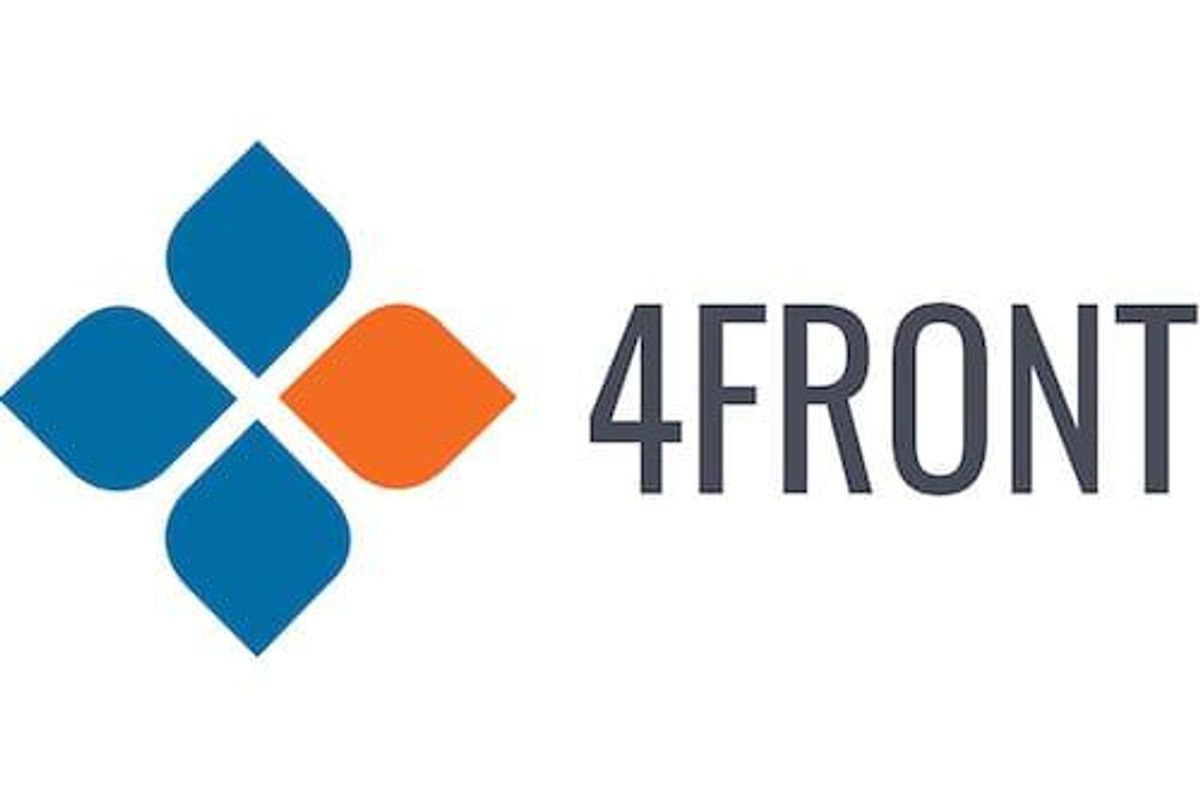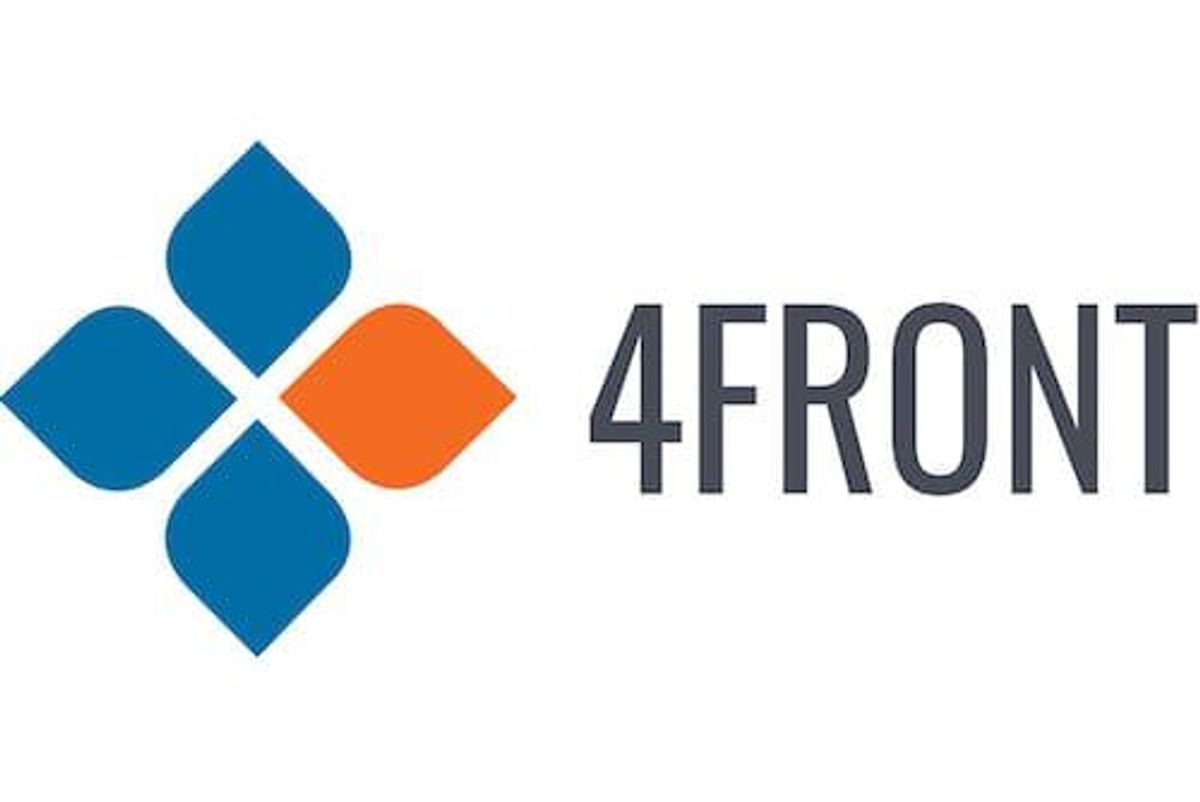
/NOT FOR DISTRIBUTION TO UNITED STATES NEWS WIRE SERVICES OR FOR DISSEMINATION IN THE UNITED STATES /
PHOENIX , Oct. 20, 2020 /CNW/ - 4Front Ventures Corp. (" 4Front " or the " Company ") (CSE: FFNT) (OTCQX: FFNTF) is pleased to announce that it has entered into an agreement with Beacon Securities Limited (" Beacon " or the " Lead Underwriter "), on behalf of a syndicate of underwriters (together with the Lead Underwriter, the " Underwriters "), pursuant to which the Underwriters have agreed to purchase, on a bought deal basis, 21,430,000 units (the " Units ") in the capital of the Company at a price of C$0.70 per Unit (the " Offering Price ") for aggregate gross proceeds to the Company of C$15,001,000 (the " Offering "). (All figures are in Canadian dollars unless otherwise stated).
Each Unit shall consist of one Class A subordinate voting share (a " Unit Share ") in the capital of the Company and one-half (1/2) of one Class A subordinate voting share purchase warrant (each whole warrant, a " Warrant ") of the Company. Each whole Warrant shall entitle the holder thereof to acquire one Class A subordinate share of the Company (a " Warrant Share ") at an exercise price per Warrant Share of C$0.90 for a period of 24 months from the Closing Date (as defined below).
The closing of the Offering is expected to occur on or about November 12, 2020 (the " Closing Date ") and is subject to the completion of formal documentation and receipt of all regulatory approvals, including the approval of the Canadian Securities Exchange. The net proceeds from the Offering will be used for working capital and general corporate purposes.
The Company has granted the Underwriters an option (the " Over-Allotment Option "), exercisable, in whole or in part, by Beacon, on behalf of the Underwriters, giving notice to the Company at any time and from time to time up to 30 days following the Closing Date, to purchase, or to find substituted purchasers for, up to an additional number of Units equal to 15% of the number of Units sold pursuant to the Offering at the Offering Price to cover over-allotments, if any, and for market stabilization purposes. The Over-Allotment Option shall be exercisable for Units, Unit Shares or Warrants (or any combination thereof).
The Units to be issued under the Offering will be offered by way of a short form prospectus to be filed in each of the Provinces of Canada , other than Quebec , and by private placement to eligible purchasers resident in jurisdictions other than Canada that are mutually agreed by the Company and Beacon, provided that no prospectus filing or comparable obligation arises and the Company does not therefore become subject to continuous disclosure obligations in such jurisdiction.
The Units, Shares and Warrants being offered have not been, nor will they be, registered under the United States Securities Act of 1933, as amended (" U.S. Securities Act ") and may not be offered or sold in the United States or to, or for the account or benefit of, "U.S. persons" (as defined in Regulation S under the U.S. Securities Act) absent registration or an applicable exemption from the registration requirements. The Units may be offered in the United States to Qualified Institutional Buyers (as defined in Rule 144A under the U.S. Securities Act) pursuant to exemptions from the registration requirements under rule 144A of the U.S. Securities Act. This news release will not constitute an offer to sell or the solicitation of an offer to buy nor will there be any sale of the securities in any State in which such offer, solicitation or sale would be unlawful.
About 4Front Ventures Corp.
4Front (CSE: FFNT) (OTCQX: FFNTF) is a national multi-state cannabis operator and retailer, with a market advantage in mass-produced, low-cost, quality branded cannabis products. 4Front manufactures and distributes a portfolio of over 25 cannabis brands including Marmas, Crystal Clear , Funky Monkey, Pebbles, and the Pure Ratios wellness collection, distributed through retail outlets and their chain of strategically positioned Mission branded dispensaries.
Headquartered in Phoenix, Arizona , 4Front has operations in Illinois , Massachusetts , California , Michigan and Washington state . From plant genetics to the cannabis retail experience, 4Front's team applies expertise across the entire cannabis value chain. For more information, visit 4Front's website www.4frontventures.com .
Cautionary Note Regarding Forward-Looking Information
Statements in this news release that are forward-looking statements are subject to various risks and uncertainties concerning the specific factors disclosed here and elsewhere in 4Front Ventures' periodic filings with securities regulators. When used in this news release, words such as "will, could, plan, estimate, expect, intend, may, potential, believe, should," and similar expressions, are forward-looking statements.
Forward-looking statements may include, without limitation, statements related to future developments and the business and operations of 4Front Ventures, developments with respect to legislative developments in the United States , expectations regarding the COVID-19 pandemic, the proposed Closing Date of the Offering, the listing of 4Front Ventures' securities on the CSE, and other statements regarding future developments of the business and the Offering. The closing of the Offering is subject to customary conditions, including the negotiation and filing of customary documentation, and there can be no guarantee that the Offering will close.
Although 4Front Ventures has attempted to identify important factors that could cause actual results, performance or achievements to differ materially from those contained in the forward-looking statements, there can be other factors that cause results, performance or achievements not to be as anticipated, estimated or intended, including, but not limited to: dependence on obtaining regulatory approvals (including from the CSE and securities regulatory bodies); investing in target companies or projects which have limited or no operating history and are engaged in activities currently considered illegal under U.S. federal laws; change in laws; limited operating history; reliance on management; requirements for additional financing; competition; hindering market growth and state adoption due to inconsistent public opinion and perception of the medical-use and adult-use marijuana industry and; regulatory or political change.
There can be no assurance that such information will prove to be accurate or that management's expectations or estimates of future developments, circumstances or results will materialize. As a result of these risks and uncertainties, the results or events predicted in these forward-looking statements may differ materially from actual results or events.
Accordingly, readers should not place undue reliance on forward-looking statements. The forward-looking statements in this news release are made as of the date of this release. 4Front Ventures disclaims any intention or obligation to update or revise such information, except as required by applicable law, and 4Front Ventures does not assume any liability for disclosure relating to any other company mentioned herein.
SOURCE 4Front

